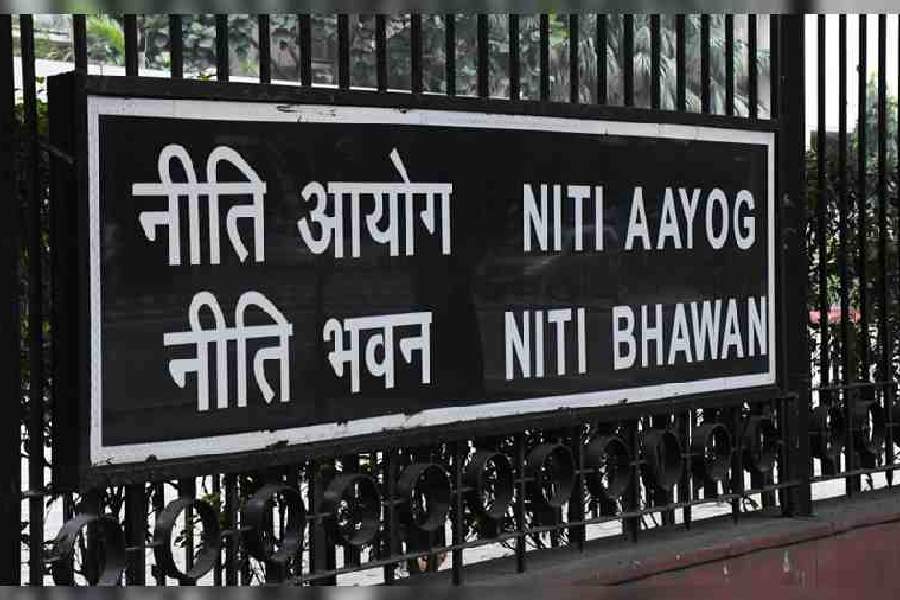 |
| Fair deal: You have the right to demand the refund of a purchased item if it is found to be defective |
When Geeta Mathew bought a saree from a neighbourbood shop in Kottayam, Kerela, she overlooked a seemingly innocuous line in the cash memo. Lost in the maze of figures and the price columns was a short sentence at the bottom of the piece of paper that curbed her right as a consumer. It was a declaration on the part of the shop that “goods once sold will not be replaced or money refunded”. Like most other consumers, Mathew had cast a cursory glance at the bill and did not bother to read the fine print.
Mathew discovered that the saree was torn and sought a replacement. She was refused on the ground that it had been mentioned in the cash memo that the shop would not do so. She had to go through a lot of harassment and take her case to the consumer court to enforce her right. The court held that no trader or seller can refuse to replace a defective good or refund the money irrespective of what is written in the cash memo. Also, since the line was not printed with the consent of the buyer, it had no legal standing.
It’s been a decade since the judgement was passed by the state commission of the Kerala Consumer Forum but thousands of commercial establishments around the country still use the clause, showing scant respect for the law. Buyers are often taken for a ride by traders who use the clause to dump their defective goods. But consumer rights protection authorities across the country, including those in West Bengal, have finally taken note of the infringement. The consumer directorate is running an awareness campaign to “educate traders and consumers” about the legal aspect of the clause. “Defective goods are always replaceable no matter what the cash memo states. This is a unilateral declaration on the part of the seller that has no legal sanction. So we are trying to tell people not to accept it,” says Tamal Ray, assistant director of Consumer Affairs & Fair Business Practice, government of West Bengal. Section 14(c) of the Consumer Protection Act, 1986 states: “?return to the complainant the price or as the case may be, the charges paid by the complainant; to pay such amount as may be awarded by it as compensation to the consumer for any loss or injury suffered by the consumer due to the negligence of the opposite party.” This makes it clear that consumers have the upper hand. They can file a case in the consumer court if a defective good is not replaced or the money not refunded.
“In all likelihood, they are going to win, for the law is on their side. Unfortunately, even traders don’t know about it. But now with our campaign taking off, there has been a change. They have started rectifying their mistake,” adds Ray.
But there’s a catch here. The seller is within his rights to lay down certain terms and conditions in the cash memo. For instance, it is not illegal to mention that the sold item has to be returned within a certain period of time. “We often come across such bills and it is the consumers’ duty to watch out for it,” says Prabir Basu, working president of the Bengal Federation of Consumer Organisations.
In West Bengal, the consumer affairs department has launched a two-pronged awareness campaign involving interaction with traders and the electronic media. Serials, quizzes and phone-in programmes on radio and television are being used to spread awareness on various consumer issues. The number of complaints has apparently gone down but still no statistics are available.
Traders agree that the rule has been flouted for far too long and it’s time to make amends. But some of them have an interesting take on why sellers have suddenly become generous. According to them, it’s got more to do with the spurt in competition than either generosity or an urge to play by the rules. “Buyers now have a greater choice. So you can’t afford to rub them the wrong way. Fortunately, traders have realised that and are refraining from printing that line in their bills. They are even taking back their defective goods which is a good sign,” says Nemai Sinha, advisor to a trade association in the city. But a majority of traders like Sinha want certain concessions to be made for traders here. “It is the consumers’ responsibility to ensure that the good in question remains intact or that the packet is not torn open. But ultimately there has to be a refund if the buyer so demands,” adds Sinha.
Not all agree, though. Members of the College Street Pipe Merchants’ Association, for example, are ready to exchange defective goods but refuse to refund the money. They also make it clear that only goods with manufacturing defects can be replaced. The seller won’t be responsible for any damage in transit. “This means they are passing on the burden to the manufacturer. They can’t do that for they have sold the goods and are bound to replace them if they are damaged in transit. Manufacturing defects are the manufacturers’ responsibility in any case and so the traders are not doing consumers a favour by taking them back,” explains Ray.
Traders and consumers still do not see eye to eye on this issue. And it seems the consumer department has a long way to go before it can make traders come round.
watch out for
• Restrictive clauses at the bottom of the cash memo
• Terms and conditions for the purchase mentioned in the cash memo
• The price mentioned in the tag. Make sure it tallies with the price that you are being charged.










